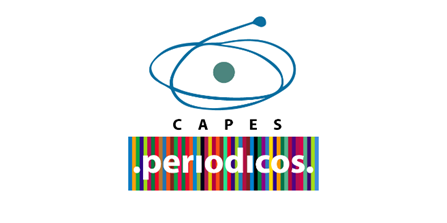APLICAÇÃO DA INTELIGÊNCIA ARTIFICIAL NOS CONFLITOS SUBMETIDOS À JUSTIÇA RESTAURATIVA: (IM) POSSIBILIDADE
DOI:
https://doi.org/10.14210/rdp.v17n3.p780-803Palavras-chave:
Justiça Restaurativa, Acesso à Justiça, Inteligência ArtificialResumo
Contextualização do tema: A multiplicidade e o dinamismo cultural que resultam da evolução da sociedade são potencializadores de divergências, sendo os conflitos inerentes a essas relações intersubjetivas produzidas pelas interações nessa atual sociedade complexa e plural. Quando valores essenciais são violados o Estado criminaliza as condutas desvirtuadas criando uma estrutura para punir aqueles que venham transgredir as regras. Hodiernamente se faz necessário rever o sistema punitivo do Estado, pois ele se mostra inadequado para as sociedades. Nesse cenário, a justiça restaurativa se apresenta como uma adequada via de acesso à justiça, por se tratar de um procedimento com aporte necessário para humanização do direito. A pesquisa se justifica porque houve uma intensificação das práticas de justiça restaurativa migrando para o virtual durante o período da pandemia da Covid-19.
Objetivo: verificar a adequação da utilização da Inteligência Artificial (IA) para automaticamente decidir processos ou servir como conciliador. Buscando compreender esse fenômeno social em um ambiente social mais amplo, realizou-se uma pesquisa jurídico-sociológica.
Metodologia, método sistemático para examinar o ordenamento jurídico brasileiro e foi feita pesquisa bibliográfica de periódicos indexados da área do Direito.
Resultado: com a metodologia desenvolvida, foi possível concluir que a utilização da IA como um robô “boca do sistema” automaticamente produzindo decisões ou conciliações apartadas do substrato social é um caminho perigoso para um retorno ao velho positivismo, que equiparou o direito à lei, onde o Juiz era a “boca da lei” (mero reprodutor da lei).
Downloads
Referências
AZEVEDO, André Gomma de. O componente de mediação vítima-ofensor na justiça restaurativa: uma breve apresentação de uma inovação epistemológica na autocomposição penal. In: SLAKMON, C., R. De Vitto, e R. Gomes Pinto, org., 2005.
BOBBIO, Noberto. Estado, Governo, Sociedade - Para uma teoria geral política. Trad. Marco Aurélio Nogueira. 3ª ed. Rio de Janeiro, Paz e Terra, 1990.
CAPPELLETTI, Mauro, e GARTH, Bryant. Acesso à Justiça. Porto Alegre: Sergio Antônio Fabris, 1988.
CARVALHO, Thiago Fabres de. Criminologia, (In)visibilidade, Reconhecimento. O controle penal da subcidadania no Brasil. Rio de Janeiro: Revan, 2014.
CASTRO, Lola Aniyar de. Criminologia da Libertação. Rio de Janeiro: ICC, 2005.
CHIOVENDA, Giuseppe. Saggi di diritto processuale civile. Dell'azione nascente dal contratto preliminare Roma, Foro Italiano, 1930.
CICHOCKI NETO, José. Limitações ao acesso à justiça, 1 ed., Curitiba: Juaruá, 2009.
CORVALÁN, J. G. (2018). Inteligencia artificial: retos, desafíos y oportunidades–Prometea: la primera inteligencia artificial de Latinoamérica al servicio de la Justicia. Revista de Investigações Constitucionais, 295-316. 2018. DOI: https://doi.org/10.5380/rinc.v5i1.55334
CUNHA, Gerson Salvi. Advocacia 4.0 e a reinvenção das organizações jurídicas. In: MAPELLI, Aline; GIONGO, Marina; CARNEVALE, Rita. Os impactos das novas tecnologias no direito e na sociedade. Erechim: Deviant, 2018.
DINAMARCO, Cândido Rangel. A instrumentalidade do processo, 11. ed., rev. e atual. São Paulo: Malheiros, 2003.
DONEDA, Danilo César Maganhoto. Et al. Considerações iniciais sobre inteligência artificial, ética e autonomia pessoal. Revista Pensar. Fortaleza, v. 23, n. 4, p. 1-17, out./dez. 2018. DOI: https://doi.org/10.5020/2317-2150.2018.8257
EIRAS NORDENSTAHL, Ulf Christian. Mediación penal: de la práctica a la teoría. Buenos Aires: Librería Histórica, 2005.
FOLLET, Mary Parker. Profeta do gerenciamento. Tradução de: Eliana Hiocheti e Maria Luiza de Abreu Lima. Rio de Janeiro: Qualitymark, 1997.
FREITAS, P. M. y PALERMO, P. G. (2016). Restorative justice and technology. En P. Novais y D. Carnero (Eds.) Interdisciplinary perspectives on contemporary conflict resolution (pp. 80-94). Hershey, PA: IGI Global. 2016. DOI: https://doi.org/10.4018/978-1-5225-0245-6.ch005
GOODNIGHT, Jim. Inteligência artificial. Analytics Software & solutions. Disponível em: https://www.sas.com/pt_br/insights/analytics/inteligencia-artificial.html. Acesso em: 03 dez. 2021.
LASSALLE, Ferdinand. O que é uma Constituição? Tradução de Hiltomar Martins Oliveira. Belo Horizonte: Cultura Jurídica - Líder, 2001.
MARINONI, Luiz Guilherme. Técnica processual e tutela dos direitos. 2. ed. revista e atualizada. São Paulo: RT, 2008.
MARTÍNEZ. Varona, Gema. Justicia restaurativa digital, conectividad y resonancia en tiempos del COVID-19. Revista de Victimología | Journal of Victimology | N. 10/2020.
MELO, Tiago; PETERSEN, Tomas M. Como a digitalização fez com que o Judiciário brasileiro não parasse durante a pandemia. 13/08/2020.
MESSUTI, Ana. O tempo como pena. São Paulo: Revista dos Tribunais, 2003.
MIRÓ, F. (2018). Inteligencia artificial y justicia penal: más allá de los resultados lesivos causados por robots. Revista de Derecho Penal y Criminología, 87-130. 2018.
MORAES, Humberto Peña de; SILVA, José Fontenelle Teixeira da. Assistência judiciária: sua gênese, sua história e a função protetiva do Estado. 2. ed. Rio de Janeiro: Liber Juris, 1984.
PINHO, Rafael Gonçalves de. Justiça Restaurativa: um novo conceito. Revista Eletrônica de Direito Processual – REDP da Pós-Graduação Stricto Sensu em Direito Processual da UERJ. Volume III. Ano 3, 2009.
PINTO, R. Gomes, SLAKMON, C. R. de Vitto, (Org.). Justiça Restaurativa. Brasília, DF: Ministério da Justiça e Programa das Nações Unidas para o Desenvolvimento - PNUD, 2005.
RAMÍREZ, Sérgio García. En búsqueda de la tercera via: la justicia restaurativa. Revista de ciencias penales. Inter criminis. Cidade do México: Inacipe, n.13, 2005.
RAWLS, John. O liberalismo político. 2. ed. São Paulo: Ática, 2000.
____________. Uma teoria da justiça. São Paulo: Martins Fontes, 2002.
ROUSSEAU, Jean Jacques. O contrato social e outros escritos. Introd. e trad. Rolando Roque da Silva. São Paulo, Cultrix, 1965.
SALIBA, Marcelo Gonçalves. Justiça Restaurativa e Paradigma Punitivo. Curitiba: Juruá, 2009.
SANTOS, Boaventura de Sousa. Pela mão de Alice: o social e o político na pósmodernidade. 7. ed. Porto: Afrontamento, 1994.
SCURO NETO, Pedro. Por uma justiça restaurativa: real e possível. Revista da AJURIS, Porto alegre, v. 32, n. 99, set. 2007.
SILVA, José Afonso. O Estado Democrático de Direito. In: Revista de Direito Administrativo. Rio de Janeiro: FGV, vol. 173, jul./set. de 1988. DOI: https://doi.org/10.12660/rda.v173.1988.45920
STJ. Superior Tribunal de Justiça. Revolução tecnológica e desafios da pandemia marcaram gestão do ministro Noronha na presidência do STJ. 23/08/2020.
SUSSKIND, Richard. Tomorrow’s lawyers: an introduction to your future. 2ª ed. Oxford: Oxford University Press, 2017.
WATANABE, K. A política judiciária nacional de tratamento adequado dos conflitos de interesses. In: TOLEDO, A. S. P. de. Estudos avançados de mediação e arbitragem. Vol. 1. Rio de Janeiro: Elsevier, 2014.
ZAFFARONI, Eugenio Raúl; BATISTA, Nilo; ALAGIA, Alejandro; SLOKAR, Alejandro. Direito Penal Brasileiro. 4. ed. Rio de Janeiro: Revan, 2003.
ZEHR, Howard. Justiça Restaurativa. São Paulo: Palas Athena, 2012.
Downloads
Publicado
Como Citar
Edição
Seção
Licença
Na qualidade de autor(es) da colaboração, original e inédita, sobre o qual me(nos) responsabilizo(amos) civil e penalmente pelo seu conteúdo, após ter lido as diretrizes para autores, concordado(amos) com o Regulamento da Revista Eletrônica Direito e Política e autorizo(amos) a publicação na rede mundial de computadores (Internet), permitindo, também, que sua linguagem possa ser reformulada, caso seja necessário, sem que me(nos) seja devido qualquer pagamento a título de direitos autorais, podendo qualquer interessado acessá-lo e/ou reproduzi-lo mediante download, desde que obedeçam os Direitos Autorais.

















